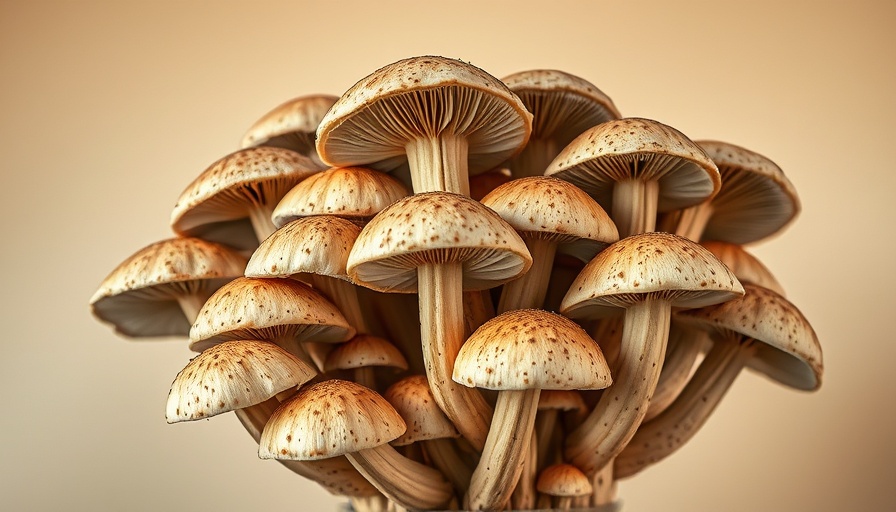
Psilocybin: A New Frontier in Longevity Research
Recent findings about psilocybin, a compound derived from hallucinogenic mushrooms, suggest it could radically change our understanding of aging and longevity. This psychedelic compound, traditionally linked with altering human consciousness, has demonstrated promising anti-aging properties when tested in laboratory settings, primarily on mice and cultured cells.
Delaying Aging at the Cellular Level
Studies have shown that psilocybin can extend cell lifespan by 57% in human fetal lung fibroblasts, which are a model for studying aging effects. Not only does it prolong cellular life, but it also significantly reduces markers of cellular distress like oxidative stress and DNA damage. These results hint at psilocybin's capacity to enhance cellular resilience, a crucial factor in combating degenerative illnesses associated with aging.
The Role of Sirtuin 1 in Aging
At the heart of these cellular changes is Sirtuin 1 (SIRT1), a critical protein involved in regulating aging and stress responses. Psilocybin appears to activate the SIRT1 pathway by binding to serotonin receptors. Enhanced levels of SIRT1 lead to increased production of antioxidant enzymes that mitigate oxidative damage, anchoring psilocybin's potential as not just a mood-altering agent but a genuine contender in longevity research. This discovery is particularly promising for professionals in the fields of therapeutics and geriatrics, underscoring the need for further investigation.
Bridging Ancient Wisdom with Modern Science
Historically, hallucinogenic mushrooms have been used in various cultures for spiritual rituals and healing practices. Today, modern science is beginning to unravel the biochemical mysteries that could bridge ancient wisdom with contemporary medical applications. Researchers like Dr. Louise Hecker from Baylor University emphasize that while the psychiatric potential of psilocybin has been explored, this study underscores its implications beyond mental health, suggesting a far-reaching impact on overall physiological aging processes.
Future Predictions: Implications for Health and Longevity
The implications of psilocybin research could extend not just to pharmaceuticals but also to lifestyle choices surrounding health, nutrition, and wellness. Given the demographic of health-conscious individuals aged 30-65, this research coincides with a growing interest in proactive health measures against aging, including diet, exercise, and now, potentially, psychedelics. As clinical trials unfold, we may see psilocybin become a central player in anti-aging therapies.
Cultural Perspectives on Psilocybin Use
The stigma surrounding psychedelic substances is slowly diminishing, with psilocybin leading the charge due to its therapeutic promise. Cultural acceptance is crucial for its integration into conventional medical practices. Continued discourse is needed around the ethical implications and societal impacts of incorporating psilocybin into our understanding of health and longevity.
As we embark on this promising journey, it's essential to foster discussions around these findings, challenge preconceived notions, and remain open to understanding how psilocybin could revolutionize approaches to aging.
 Add Row
Add Row  Add
Add 




Write A Comment